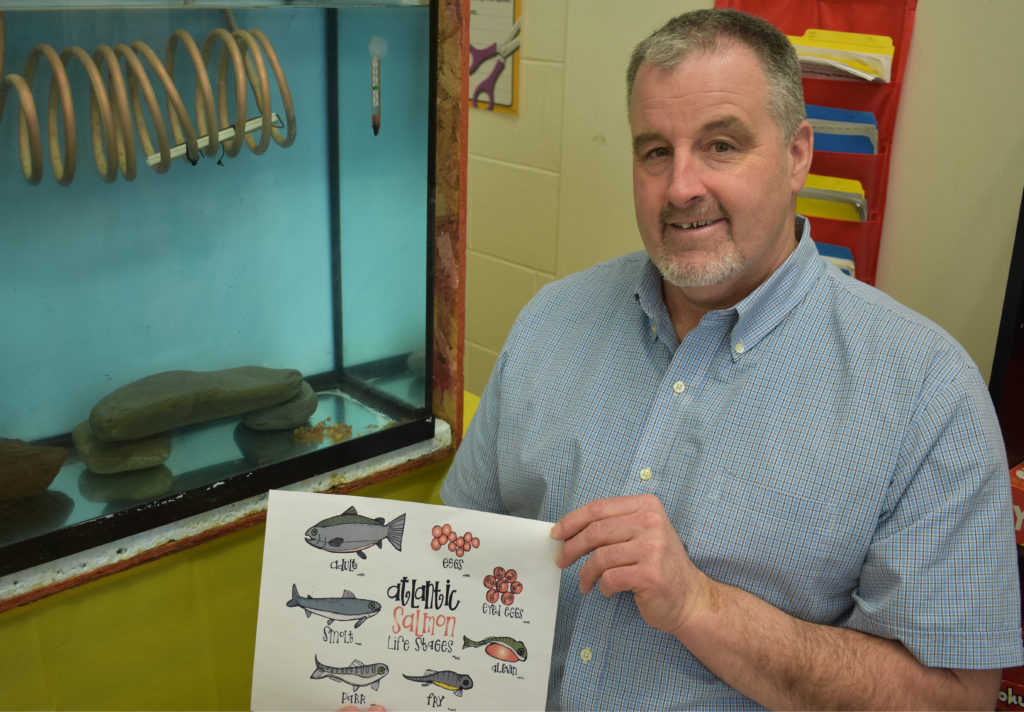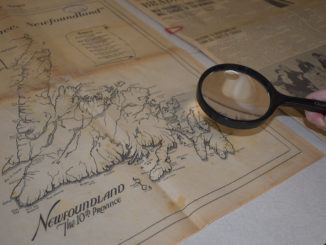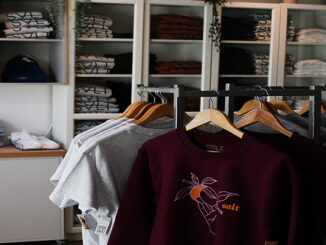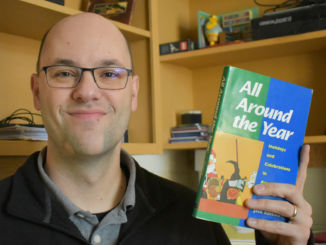The Suncor Energy Fluvarium’s Fish Friends program arranges for students to raise Newfoundland salmon in their classrooms.

Melissa Wong
Kicker
Atlantic salmon are hatching in Grade 4 classrooms.
Roncalli Grade 4 teacher David Sullivan said some of his students are worried about what will happen to the salmon after they are released.
“Salmon return to the river they are born in,” Sullivan said. “So, the kids are quite concerned that because they are born in a fish tank, will they come back to the fish tank?”
The children understand Newfoundland salmon carry with them a desire to come home because it’s their natural instinct.
“[The salmon] imprint on the river that they grow up in,” said Sullivan. “And even though they go as far as Greenland and back, when they come in the waters of Newfoundland, they can smell the river that they came out of because they do spend around three to four years in the river before they go into the ocean.”
According to Sullivan, he and his students have been involved with the Suncor Energy Fluvarium Fish Friends program for four years. Sullivan added that 2019 is a special year because it is the International Year of the Salmon.
Year of the Salmon
The International Year of the Salmon is a project started by partners such as the North Pacific Anadromous Fish Commission and the North Atlantic Salmon Conservation Organization.
Sullivan’s class was invited to a press conference to meet a special guest because of their involvement in the program. On Feb.6, Gerry Byrne, minister of Fisheries and Land Resources, went to the fluvarium and met Sullivan’s students.
“Newfoundland and Labrador is home to more than half of all remaining wild Atlantic salmon in North America; one out of two wild salmon comes from our waters,” Byrne said in a news release. “This province – the epicentre of the North American salmon resource and an internationally renowned salmon angling destination – plays a crucial role in the conservation of this species.”
Sullivan’s classes have done what they can to help the endangered species, despite many challenges. One year, Sullivan recalls, there was a power outage that killed most of the eggs.
“The fish were just about to hatch, and that turned out to be kind of devastating because they were at a very vulnerable stage and then the power outage . . . the tank froze and the filter wasn’t working,” Sullivan said.
Without the power to warm the water, only 13 salmon survived that year.
Though it can be hard, Sullivan said he tries to help the fish survive. When one of the alevins, the scientific term used for a young salmon, jumped out of the tank this year, he made sure to put that fish back in the tank. He assured his class the escapee was still alive.
[embedyt] https://www.youtube.com/watch?v=6A6MoKCZIFg[/embedyt]
The life cycle program
The Fish Friends program is run by Bob Piercey, an environmental educator. He has worked at the fluvarium for 26 years. He said the program is for Grade 4 students, but Grade 2 students have been involved in the program as well.
According to Piercey, Fish Friends is an outreach program that is a part of the Newfoundland’s education curriculum. The program lets children see the salmon grow up in a classroom setting.
Related story: Newfoundland’s recreational salmon fishery is on the line
The Atlantic salmon in the program come from the Exploits River, which is a major salmon river in central Newfoundland. The Exploits River Management Association trap the salmon, and the Salmon Association of Newfoundland bring the fish eggs to the Fluvarium.
According to Piercey, there has been no commercial fishery for fresh or saltwater Atlantic salmon for the last 20 years because the stock’s numbers have declined dramatically.
Piercey hopes the salmon stock can return to what it was before being over-fished and their rivers were destroyed by dams. He said the program can help “right the wrongs we did as humans.”
According to Piercey, 15 schools on the east coast are taking part in the 2019 Fish Friends program. The Grade 2 class at Morris Academy in Mount Pearl is one of the groups involved.
“We are the youngest group of students that participate in the program,” said Angela Furlong-Kelly, who teaches the Morris Academy Grade 2s.
The Fish Friends program has become a tradition for the Morris Academy students each year.
“It’s [about] respect for life; it’s [about] respect for themselves in the commonality of caring for a world,” Furlong-Kelly said.




Be the first to comment